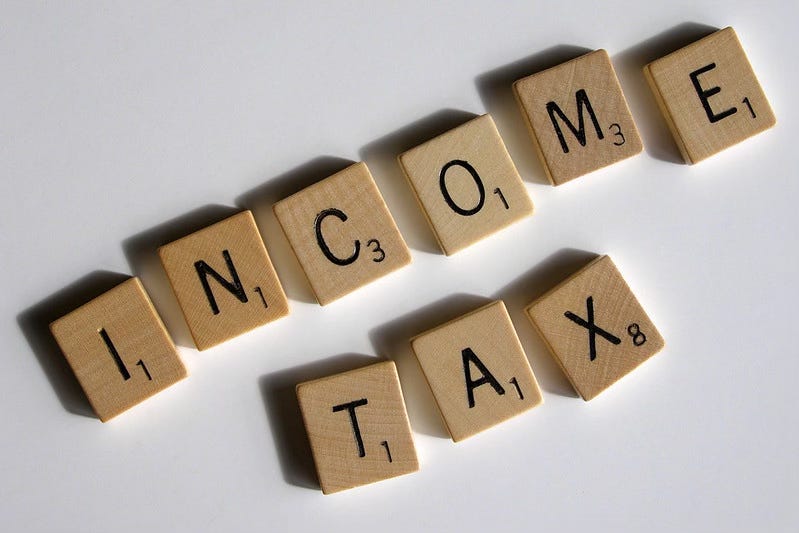MMT Economics Jargon Buster - Part 3 (M+ thru N)
If you’re new to MMT, you’ll need a reference. This is article three, in which I define the most commonly used MMT terms from M thru N.
In this series of articles, I aim to cover the basic MMT terms. In the future, I will continue to add to this article (and all future articles that are part of this series) and when they are all done, I’ll create a downloadable resource.
MMT Jargon buster 3: M thru N.
Monetary Sovereign Governments
Monetary sovereign governments are those that have the power to issue their own currency and control how they use that currency without external pressures or constraints.
Such governments can make decisions about spending and investments to support citizens – without being constrained by the need to borrow money or to maintain reserves in another country’s currency. This gives greater flexibility and freedom when setting policies and national development goals.
This fiscal freedom (i.e., freedom of choice relating to taxing & spending priorities) contrasts with governments who either do not have their own currency or they issue their own currency but find that their policy choices are restricted. For example, often such countries have large foreign debts; which means they have to import goods and services that they don’t produce domestically and/or they need to spend foreign currency reserves to stabilise the value of their currency. All of these issues can force the government to concentrate on activities designed to earn foreign currencies - rather than activities designed to support domestic needs.
Definition of the phrase ‘foreign currency reserves,’ also called ‘foreign exchange reserves’: Foreign currency reserves are assets held by a country's central bank or monetary authority in various foreign currencies. Typically stored in central bank accounts, these reserves are used to stabilise the domestic currency, manage exchange rates, and fulfil external financial obligations.
If you’re finding value in these articles, become a paid subscriber. Your support helps me continue writing about MMT and building a community of like-minded individuals.
Monetary Sovereignty is a Spectrum
Some countries have full sovereignty and some have very little or none. Issuing your own currency is not enough for a country to be considered to have full monetary sovereignty.
Economists Dr. Fadhel Kaboub writes that a country’s monetary sovereignty depends on the following.
They issue & tax in their own currency.
They do not borrow or rack up debts in a foreign currency;
They do not peg their currency to another currency or commodity;
They have control over their core needs such as food, energy, technology and knowledge.
Countries like the US, UK, Canada, and Australia meet all of these criteria. They have full monetary sovereignty. As I outlined above, this means these countries not only issue and tax in their own currency but also have full control over their fiscal (taxing and spending) and monetary (interest rate) policies. They have no need to obtain currency reserves to control their exchange rates or to import core needs such as food, energy, technology, or knowledge.
Countries like Argentina and Turkey issue their own currencies but do not have full monetary sovereignty. Both have large debts denominated in foreign currencies and rely on imports for many essential goods. This means their policy choices are limited by the need to earn foreign currency. For example, they may be forced to grow specific crops for export or focus on developing tourism as a generator of foreign currency. These requirements can distract from addressing the needs of their own citizens or tackling underlying structural issues within their economies.
Ecuador is an example of a country with little or no monetary sovereignty. Since 2000, Ecuador has been fully ‘dollarised’ meaning it exclusively uses the US dollar as its official currency. This system eliminates any exchange rate or peg mechanism, as the country does not operate a domestic currency alongside the dollar. You can bring US dollars from the United States and spend them directly. There is no need to exchange US dollars for an Ecuador-specific currency, as the US dollar functions as the sole legal tender in the country. The downside for the government is that it has no control over monetary policy decisions, as these are determined by the currency issuer, i.e., the US.
Definition of ‘dollarised’: The term "dollarised" refers to a situation where a country adopts the US dollar as its official or primary currency, either partially or fully, instead of, or alongside, its own national currency.
Moneyness

In MMT, moneyness refers to how easily something can be used to pay for goods, services, or debts. For example, if you have a five-pound note, you can go into a newsagent and buy a newspaper: it has a high degree of moneyness. However, if all you had in your pocket was an IOU your neighbour gave you for cleaning his windows, the newsagent is unlikely to sell you the newspaper in exchange for that IOU.
In this context, that IOU has a very low degree of moneyness. You may well be able to cash it in with your neighbour to get them to do you a favour in exchange, but you are unlikely to be able to buy a newspaper (or anything else) with it.
The currency issued by the government of the country has the highest degree of moneyness. It is the only currency you are allowed to use to pay your taxes—nothing else is acceptable. You can be confident everyone will accept it in exchange for goods and services.
So, there is a hierarchy of moneyness in every monetary system. The position of other forms of money in this hierarchy depends on the ease with which they can be converted into the government’s currency.
Money of Account

“Money of account” is a term used by L. Randall Wray. It refers to "the label used to denominate particular monetary values." The label varies across history, countries, and cultures. Sometimes it’s called a pound, sometimes a dollar, and sometimes a lira.
L. Randall Wray writes that “all money originated as a way to measure and record a debt.”
The Money Story

In relation to MMT, references to ‘the money story’ refers to a narrative put forward by Warren Mosler (and other MMT advocates), i.e., that taxes were invented to get people to do the things the government needed done, i.e. build roads, serve in the army or work in a public health service and so on.
“Yeah, so you have to start the money story somewhere and if you go to a textbook usually they don’t know what money is or anything like that but what it does and it’s a medium of exchange and it’s kind of mysterious. But for me, the story begins with a state that wants to provision itself. “ Warran Mosler speaking to The Intelligent Investor
Warren notes that, just having a state currency isn’t enough to motivate potential workers to obtain/use that currency; there has to be a compelling reason. As Hyman Minsky pointed out, “Anybody can come up with money, it’s how do you get anybody to accept it.” The ‘money story’ is the story of how governments solve that problem.
Governments enforce the use of their currency by imposing a tax liability; a liability that must be paid in that currency. This means people need to find a way to earn it to pay their taxes. And the simplest way to do that is to work for the government. As Mosler puts it:
“You put a tax liability, let’s say, on everybody’s house to keep it simple, in US Dollars. Nobody has any, so now they’re all out looking for work so they can earn US Dollars so they don’t have to lose their house. Now the government can hire those people with its, what I call, otherwise worthless dollars…” “…When the government does that it deliberately puts tax liabilities in place to cause people to need paid work so it can hire them to be soldiers and judges and school teachers or whatever it wants, and so it’s all by design.” Warren Mosler speaking to The Intelligent Investor
In summary, the 'money story' highlights how governments use tax liabilities to establish their currency's value and create demand for it. By imposing taxes that can only be paid in the government's chosen currency, the state ensures its citizens must obtain that currency, typically by offering their labour. This system transforms the state's currency from an abstract concept into a tangible, necessary tool for economic activity and governance. With this framework in place, we can see how this dynamic leads to the concept of unemployment—a term tied directly to the demand for paid work in the government’s currency.
A tax liability invents the idea of unemployment
Prior to the invention of tax liability the word ‘unemployed’ made no logical sense: as there was no need to work in order to obtain the money needed to pay taxes. The concept of ‘unemployment’ didn’t exist. That’s not to say that people didn’t work—just that there was no requirement to find paid work.
So Mosler defines unemployed people as people actively seeking paid work but not finding it. Tax liabilities create the condition where people must search for paid work to earn the government’s currency—hence, unemployment as a concept arises as a monetary phenomenon, tied directly to the tax system.
Warren Mosler (and other MMT advocates) extrapolate from this idea to argue that monetary sovereign governments have an obligation to ensure full employment. They assert that unemployment is a government-created phenomenon, directly tied to the imposition of taxes and the government’s role as the currency issuer.
Neoliberal economics
Neoliberal economics came to the fore in the early 1980s. It primarily grew out of the classical liberal tradition of economic thought, with strong influences from Austrian economics and neoclassical economics. A main focus of neoliberal economics is to ensure that markets are free from government intervention and over-regulation, as both are believed to stifle innovation and entrepreneurialism.
When businesses are free to compete and individuals have the freedom to make choices, this is said to lead to the best outcomes for both sides of the transaction.
Neoliberal economics is a set of ideas and policies that focus on promoting:
Markets free from government intervention and over-regulation.
Voluntary exchange of goods and services.
Competition.
Property rights (e.g., buildings and patents).
Prices determined by supply and demand.
Individual freedom:
Limited government intervention in the economy.
Low trade barriers.
A ‘flexible’ labour market, i.e., making it easy to hire and fire workers so businesses can respond to market changes.
Low taxes: to keep more money in the pockets of citizens so they can spend and stimulate growth.
Use of interest rates to influence the economy, i.e., monetary policy. Neoliberal economists are less keen on using spending and taxing as policy tools, i.e., fiscal policy.
Minimising business regulations.
Privatising government-owned industries.
Rational, Self-interested Individuals Shape Market Behaviour
Neoliberal economists place significant emphasis on the idea of the rational, self-interested individual. This view assumes that people act in their own best interests, making decisions that maximise their personal satisfaction or utility.
In this framework, human behaviour is seen as predictable and shaped by a consistent desire to achieve the most benefit at the least cost. Neoliberalism suggests that when individuals pursue their own goals in this way, markets naturally self-regulate, leading to outcomes that are efficient and beneficial for society as a whole.
This belief underpins the idea that free markets, unburdened by government interference, are the best mechanism for allocating resources and driving innovation.
Critics, however, argue that this focus on individual self-interest overlooks the role of cooperation, community, and inequality in shaping economic outcomes. Such critics also argue that the ‘free market’ has a tendency to benefit those who already have wealth and power, as it prioritises profits over issues like environmental protection and social welfare.
The Non-Accelerating Inflation Rate of Unemployment (NAIRU)
The Non-Accelerating Inflation Rate of Unemployment (NAIRU) refers to a rate of unemployment that neither accelerates nor decelerates inflation. It does not mean a rate at which there is no inflation or no deflation - it just means that the inflation rate is steady (not accelerating/decelerating).
If you’re finding value in these articles, become a paid subscriber. Your support helps me continue writing about MMT and building a community of like-minded individuals.
That’s Enough MMT Jargon For Now
MMT101.ORG - Learn Modern Monetary Theory (MMT) is a reader-supported publication. To receive new posts and support my work, consider becoming a free or paid subscriber.
All The Jargon I’ve Missed From M To N
I know I’m missed out many, many pieces of jargon in this list from A through to F. So please add your own list of MMT words I should have covered in the comments section below. I will add them in a future update of this article. Thanks.
And of course, if you disagree with my definitions your comments are welcomed.
Subscribe now to learn how we can make the economy work for citizens and the planet.
Jim Byrne - MM101.ORG
Support MMT101.org by Becoming a Paid Subscriber
If you are enjoying these articles and find them a useful part of your Modern Monetary Theory (MMT) education, please support MMT101.ORG—if you can—via small donation. $5 (or the equivalent in your own currency—SubStack uses US dollars) will allow me to continue this work and reach & teach more people. If you can’t do that, consider sharing the articles and podcasts. By subscribing and supporting, not only will you learn how the economy works, but you will also be part of the efforts to change people’s lives for the better. I do not have the power to do that alone, but as an ever-expanding group who understand that there is a better way, we can make a difference.
Thanks,
Jim








Excellent information again. Understanding this is important to the effort to redirect from being the corporatocracy the U.S. has become. We are in a very precarious position as a result of neoliberal policies, privatization, and a system now hugely rigged by and far the ultra-wealthy.